NCAA Division III Men’s Top Ten Returning Point Scorers
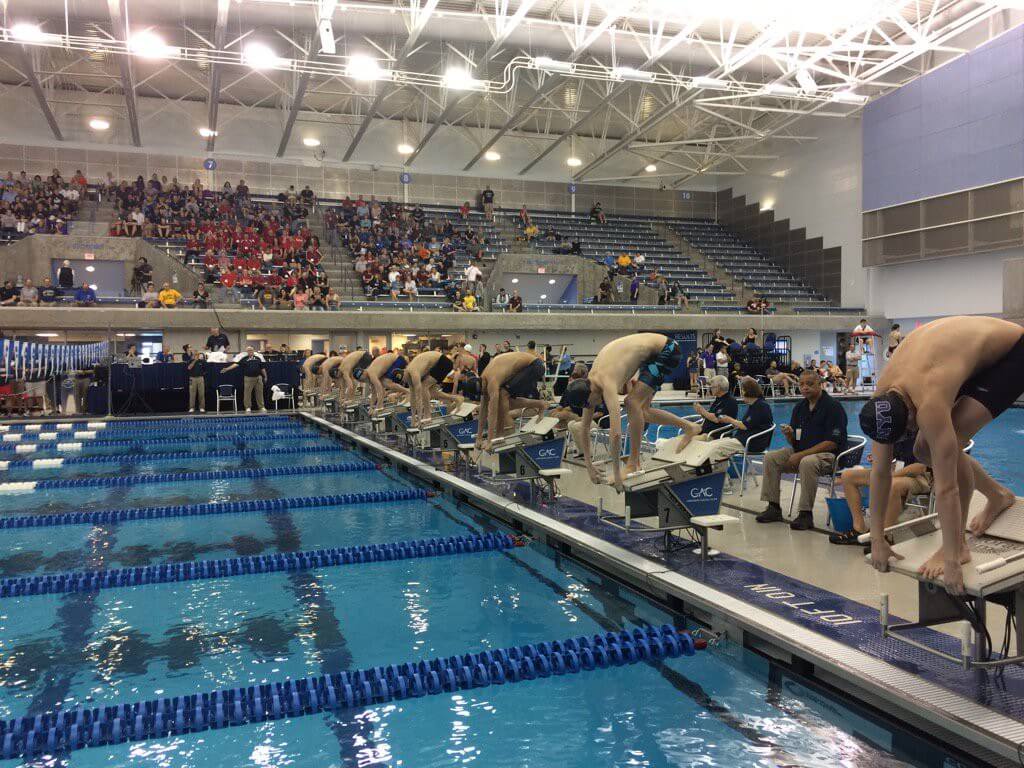
As NCAA Division III swimming and diving gets underway again this year, the men from Denison are looking to defend their NCAA Championship title. The Big Red return a strong core of athletes, including three of the six highest scoring athletes at last year’s National Championship. Long time rival Kenyon’s third place finish last year was a product of depth as the Lords do not have any of the top ten returning scorers this fall.
Emory looks to stay in the fight for a national title, led by distance ace Thomas Gordon and relay stalwart Sage Ono. Johns Hopkins finished fourth in 2018 and has two of the top ten returning scorers.
Based on the results of the 2018 Championships, here’s a look at the men’s top ten returning scorers to NCAA Division III this year. For the women’s list, click here.
(Name: School, Class Year in 2018-2019, Points Scored at NCAAs in 2018).
1. Thomas Gordon: Emory, Senior 56
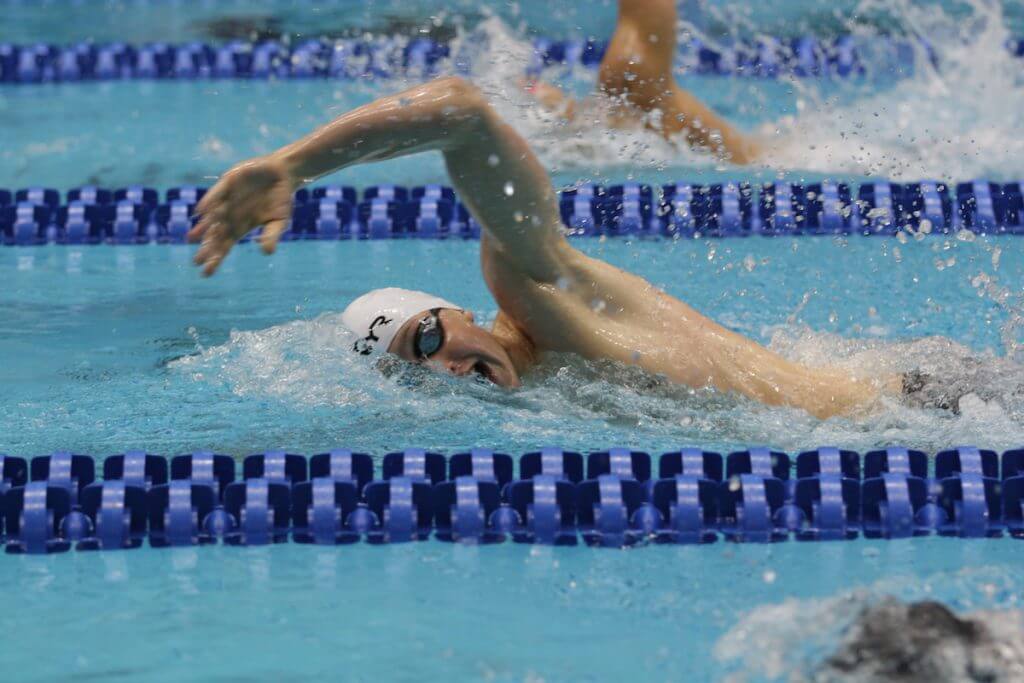
Photo Courtesy: Emory Athletics
500 Free- 4:23.70, 1st; 200 Free- 1:37.41, 3rd; 1650 Free- 15:15.60, 1st
While distance swimmers are typically considered to have less value than their (relay crucial) sprint counterparts, Gordon’s distance success cements him as the leading returning scorer to Division III this year.
Last March Gordon bookended his week in Indianapolis with a pair of victories. He was a touch off his lifetime bests, all set at NCAAs his sophomore season, but the times he went were still good enough for a win in the 500 and 1650.
In the 200 free, the only event where Gordon could score anymore points, he’ll be chasing Brandon Fabian and Karl Sarier who were first and second last year, and both return. Denison’s Matt Hedman was just behind Gordon in the 500 and 1650, and the two could have more close races in their senior year.
2. Bebe Wang: Denison, Junior 53
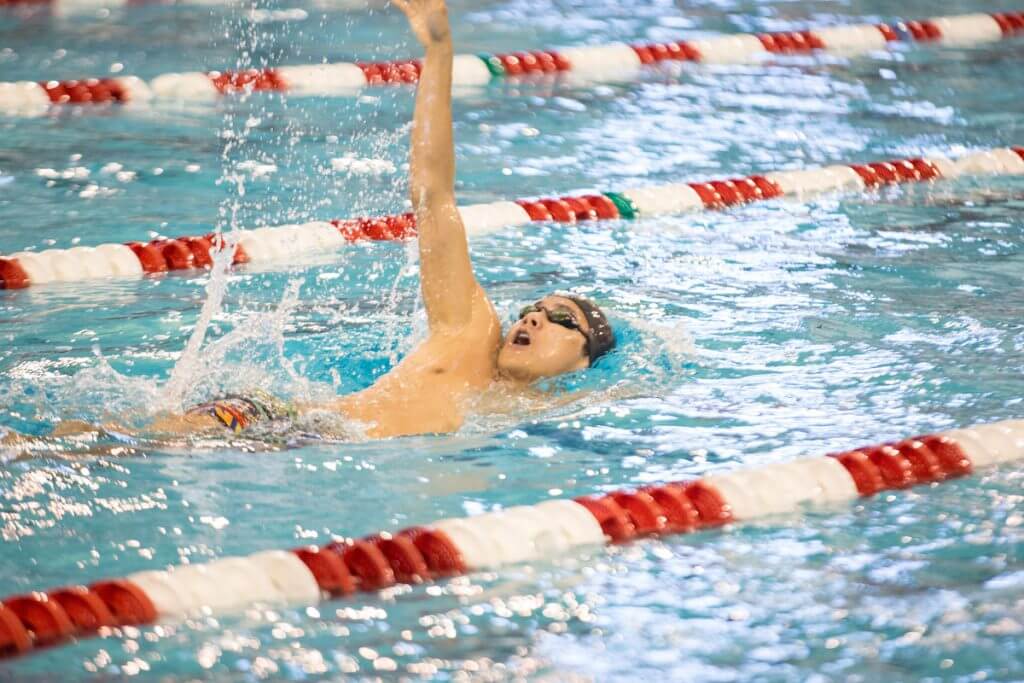
Photo Courtesy: Dennis Lowe
200 IM- 1:47.50, 3rd; 400 IM- 3:49.70, 2nd; 200 Back- 1:45.37, 1st
Wang kept getting better as the week progressed at NCAAs last year, moving up from third to second to first in his events. After Ian Rainey (NYU) won both IMs in 2018, his graduation opens up space for Wang to move up in the rankings. Wang posted lifetime best times in all three of his individual events. Last year he improved his 200 back by nearly two seconds, and also knocked off six in his 400 IM and a full second in his 200 IM.
Wang was also impressive in the 800 freestyle relay, splitting a 1:36.71 from the third leg, the fastest split in the entire meet. While it seems unlikely he would change events, and a 400 IM-200 free double would be nearly impossible, Wang does give the Big Red options.
3. Matt Hedman: Denison, Senior 49
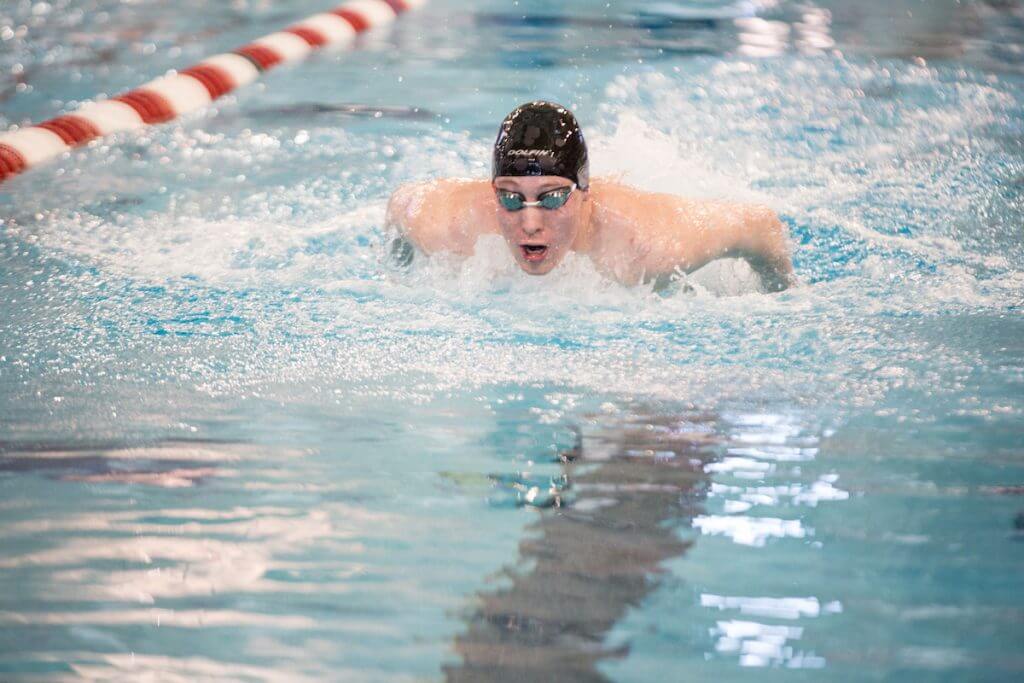
Photo Courtesy: Dennis Lowe
500 Free- 4:25.16, 2nd; 400 IM- 3:52.83, 4th; 1650 Free- 15:17.29, 2nd
In both the 500 free and 400 IM Hedman blew the doors off in the morning, coming out of prelims holding the top seed. Both times he managed to drop another second in finals, but it wasn’t enough to hold onto the top spot.
Hedman will be chasing Gordon, who beat him by slim margins, in both the 500 and 1650. It wouldn’t take much to take down Gordon and score a touch more. Over the last year alone Hedman’s 1650 free time has improved by 19 seconds. After touching just two seconds behind Gordon last year, time will tell if Hedman has enough room on the improvement curve left to chase down his competition from Emory.
4. Mitch Williams: Denison, Junior 42
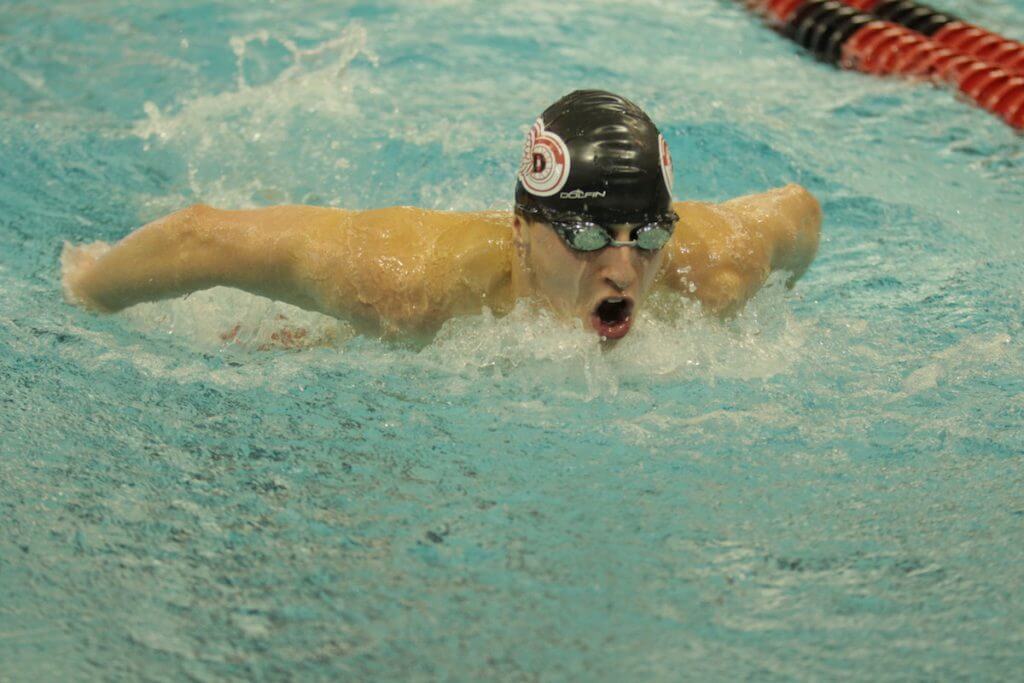
Photo Courtesy: Craig Hicks
200 IM- 1:50.15, 7th; 400 IM- 3:53.09, 5th; 200 Fly- 1:46.67, 3rd
Williams (listed in last year’s results as Robert–not to be confused with Kenyon’s Robert Williams) tallied a number of points with Championship finals appearances in both IMs, but he shined the most in the 200 fly.
Williams’ teammates Wang and Hedman touched second and fourth in the 400 IM last year. With another year to train with that duo, he could have more in the tank, and score a few more points in 2019.
In the 200 fly Williams was fourth tenths faster in prelims than he was in finals. Had he gone that time at night, he would have been National Champion by two tenths of a second. With another year of experience (and the transfer of NCAA Champion Cooper Knapp to UConn), Williams could challenge for the top spot in the 200 fly.
5. Emile Kuyl: Johns Hopkins, Senior 42
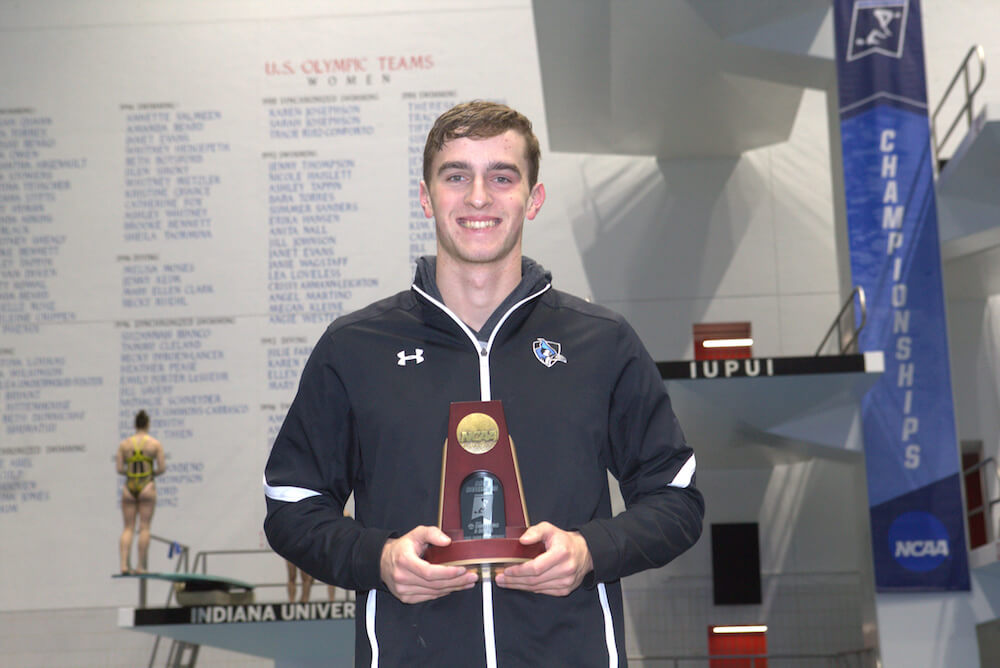
Photo Courtesy: Ryan Coleman
200 IM- 1:49.36, 6th; 100 Back- 47.81, 2nd; 200 Back- 1:49.86 7th
Kuyl was a key piece of Johns Hopkins’ relay efforts, as well as a big scorer individually last year. He led off the Blue Jays’ fourth place 200 medley relay in 22.27 and 400 medley relay in 48.41. He swam second (20.37) on the team’s sixth place 200 freestyle relay and also posted a 45.24 in the leadoff spot of the team’s runner up 400 freestyle relay.
Kuyl was a good bit faster in his individual 100 backstroke than he was on the relay, resulting in a runner up finish. He’ll want to keep that trend going this year in order to maximize his points scored. At the end of a long week of racing, Kuyl was two seconds slower in finals of the 200 back than he had been in prelims. If he’d gotten back down to the 1:47.87 he posted in prelims, Kuyl would have move up to fifth.
6. Brandon Fabian: Johns Hopkins, Junior 39
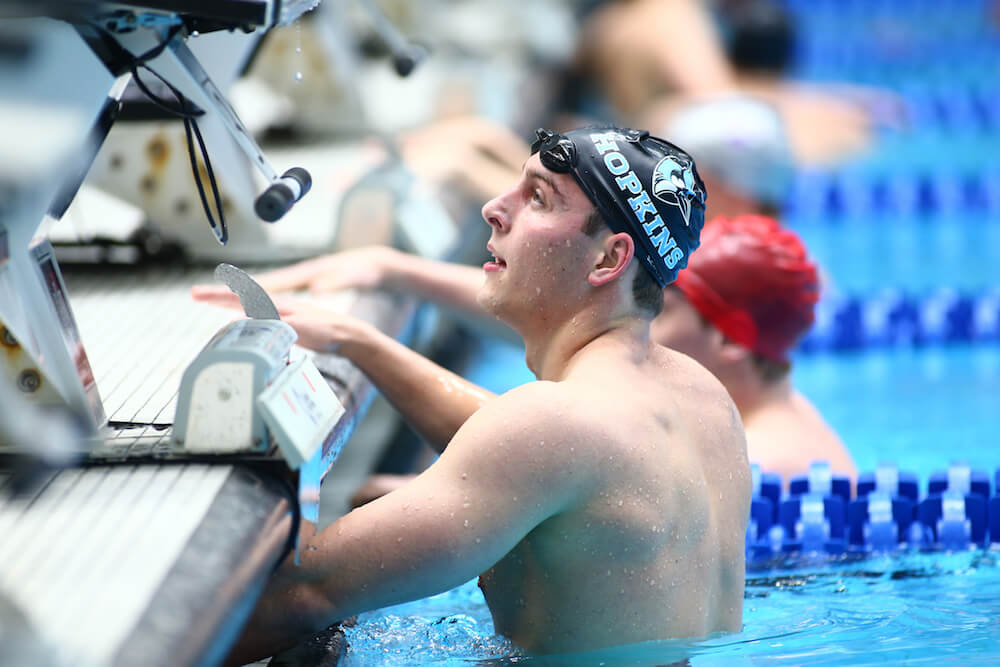
Photo Courtesy: Ryan Coleman
500 Free- 4:29.26, 7th; 200 Free- 1:36.94, 1st; 100 Free- 44.33, 10th
Virginia Tech transfer Fabian made an impact on Division III from the get go last year, winning a National title, getting second swims in two other events, and playing a role on Blue Jay relays.
At night in the 200 free Fabian was a half second slower than he had been in the morning (1:36.58), but it was enough to hold off Bowdoin’s Sarier by .02, and claim a National Title for the Blue Jays.
In finals of the 500 free Fabian added two seconds from his prelims time, though ultimately the time difference made no impact on place, as he touched seventh. Fabian’s lifetime best in the event still stands at 4:26.36, swum when he was 16. Getting back to that speed would move him up a few places.
Fabian was a half second off his seed time in the 100 free (44.29) in prelims. He came back to finish second in the Consolation final, still just shy of his seed, but in a time that gone in the morning would have landed Fabian in the top heat, with more room to move up and score higher. In his second year in Division III, Fabian has the opportunity to play a higher scoring role.
7. Kingsley Bowen: Tufts, Senior 39
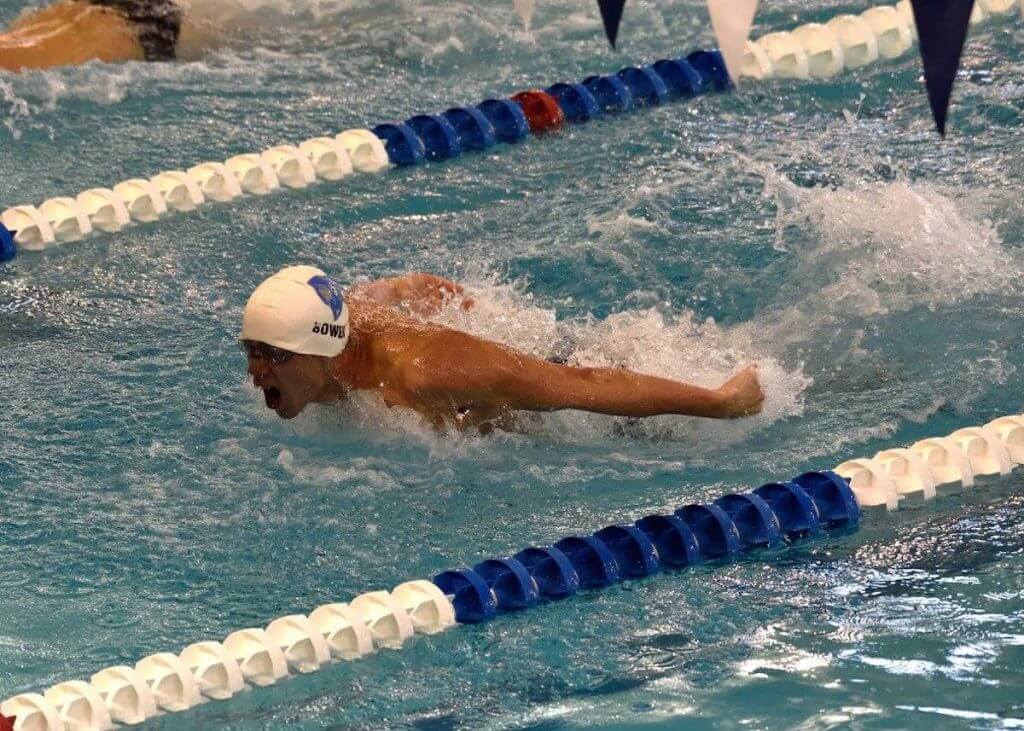
Photo Courtesy: Tufts Athletics
100 Fly-48.88, 10th; 100 Back- 48.54 3rd; 200 Back- 1:46.36 3rd
Bowen returns to his senior year as arguably the leading backstroker in Division III. While a number of backstrokers sit on this list, Bowen placed high in both distances, and added a scoring third event to his schedule. In his sophomore campaign Bowen was sixth in the 100 back and the 100 fly, and third in the 200 back.
Last year, he was seeded at 48.22 in the 100 back, but couldn’t quite match that time. That time would not have moved him up place-wise, but those tenths could make a difference this year. He was also a touch faster (48.47) on the Jumbos’ finals 400 medley relay than he was individually.
Again in the 200 back Bowen couldn’t quite match his best times in finals (He went 1:46.12 in the morning, a time that earned him the middle lane at night.), but he did repeat his bronze performance.
Bowen’s lifetime best 100 fly (swum at NCAAs his sophomore year) would have left him in a swim off for the eighth spot. However, he was two tenths off that time, left in the Consolation final. If he can get back to that speed this year, Bowen has the potential to move himself (and the Jumbos) up in his senior year.
8. Sage Ono: Emory, Junior 36
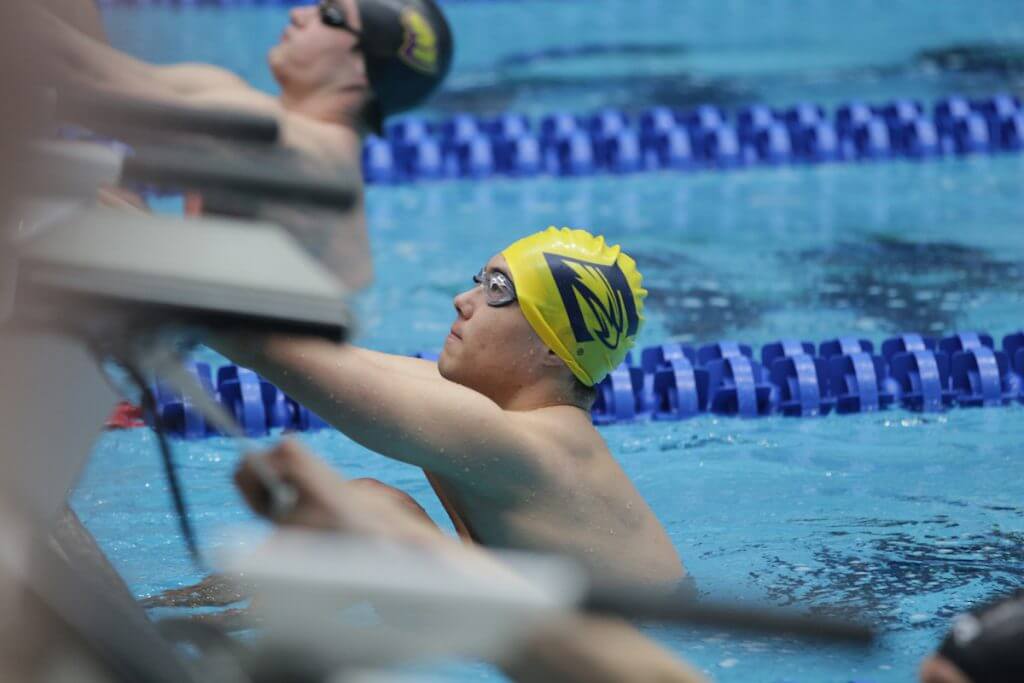
Photo Courtesy: Emory Athletics
50 Free- 20.37, 12th; 100 Back- 47.62, 1st; 200 Back- 1:50.61, 8th
Individually Ono’s week got off to a very strong start. He swam his 50 free faster in finals than prelims, and in an event where ninth and 12th were separated by .08, every drop counted. That came after the morning, when Ono knocked a full two tenths from his seed (20.58), which would have finished merely tied for 19th.
In the 100 Back Ono dropped three tenths from his seed to prelims and again from prelims to finals. Those drops were difference makers as Ono claimed the National title.
By the week’s final session, there wasn’t much left in the tank. After he posted a 1:47.73 in prelims of the 200 back (a time that would have been fifth overall), Ono faded to eighth at night. That 1:47.73 was a lifetime best though. If he’s going to score more points this year, the 200 back looks like the event where Ono can make that happen.
**While not factored into his individual points total, Ono is the biggest scoring returning relay piece. He swam the lead off leg of four National Title winning relays, splitting 20.43 (twice) on the 200 free relay and a 44.93 on the 400 free relay. He was 22.21 in the backstroke leg of the 200 medley relay and 48.08 in his 100 backstroke leg.
9. Jamie Lovette: Williams, Sophomore 35
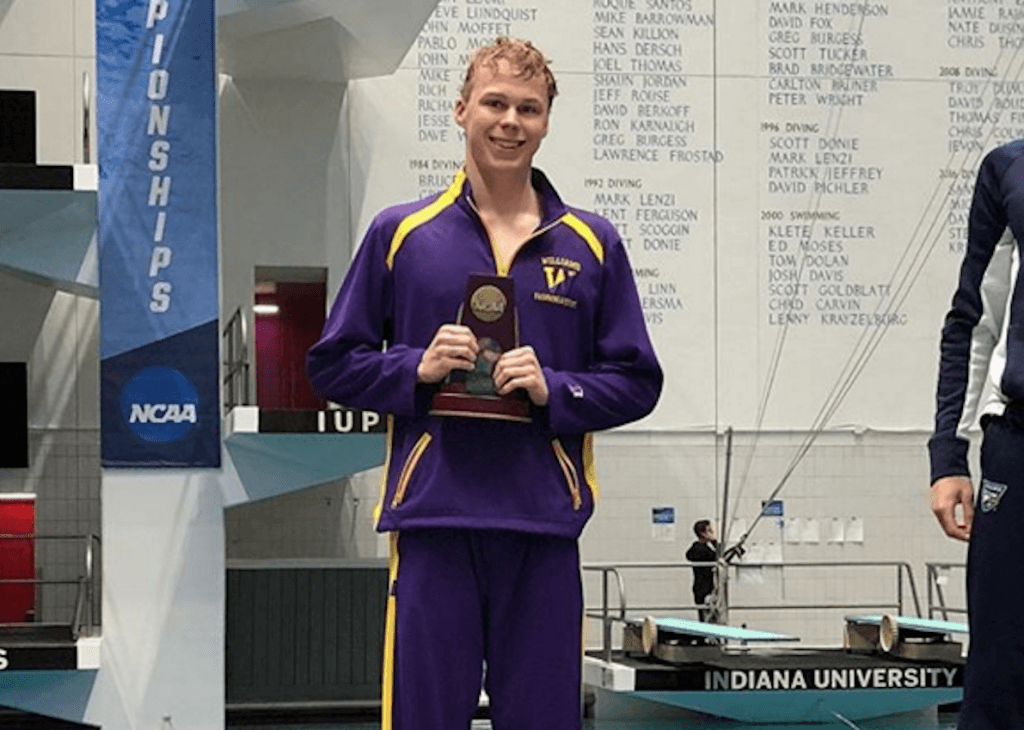
Photo Courtesy: Williams College Swim and Dive Instagram (@eph_swimdive)
500 Free- 4:28.23, 12th; 200 Free- 1:38.12, 4th; 1650 Free- 15:32.96, 4th
The only sophomore on this list, Lovette is a freestyler with impressive range, with his top finishes coming in the 200 and 1650. He had a big week in Indianapolis, posting a full set of lifetime best times. Lovette took nearly 40 seconds off his 1650 time in his first year in college.
Coming into the year, Lovette’s best 200 free time was only a 1:40.15. After posting two 1:38-mids at NESCACs, he continued to drop at NCAAs. Lovette was a 1:38.07 on the end of the Ephs’ 800 freestyle relay as well.
He also stretched down to even shorter events, swimming a 20.69 on the Ephs’ 200 free relay and a 45.84 on the 400 freestyle relay. While those times wouldn’t make him Nationally competitive in the shorter events, they are a testament to his speed.
10. Kymani Senior: Denison, Junior 33
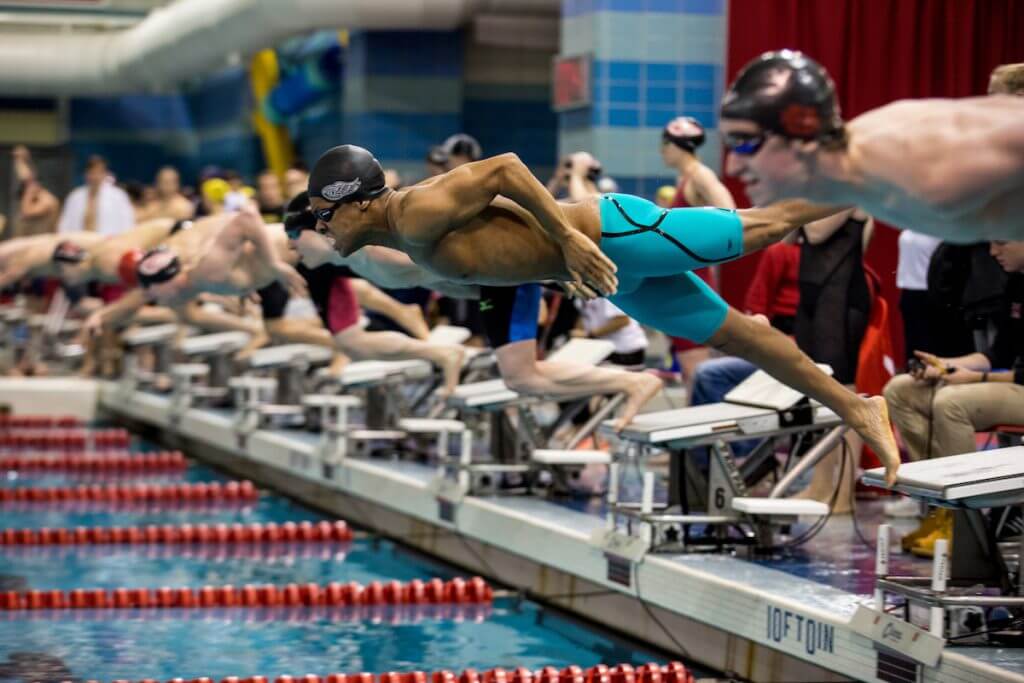
Photo Courtesy: Dennis Lowe
50 Free- 20.20, 6th; 100 Fly-48.03, 1st; 100 Free- 45.15, 19th
Senior’s flat start 50 free was a bit off last March. After coming into the meet with a lifetime best and seed of 20.06, Senior touched in 20.17 in prelims, before fading a touch more to 20.20 at night. Leading off the team’s 200 freestyle relay Senior could only manage a 20.53 in finals after a 20.31 in prelims. He did manage a pair of 19.6s on the end of the Big Red’s 200 medley relay in prelims and finals though.
He bounced back to win the 100 fly though, in a lifetime best time, taking six tenths from his seed time, and splitting even faster than he did on the 400 medley relay. Senior didn’t score in the 100 free, but matched his seed time exactly, replicating his lifetime best time. If he can get his third event into scoring range, Senior will have a bigger impact on the Big Red in his final year.



